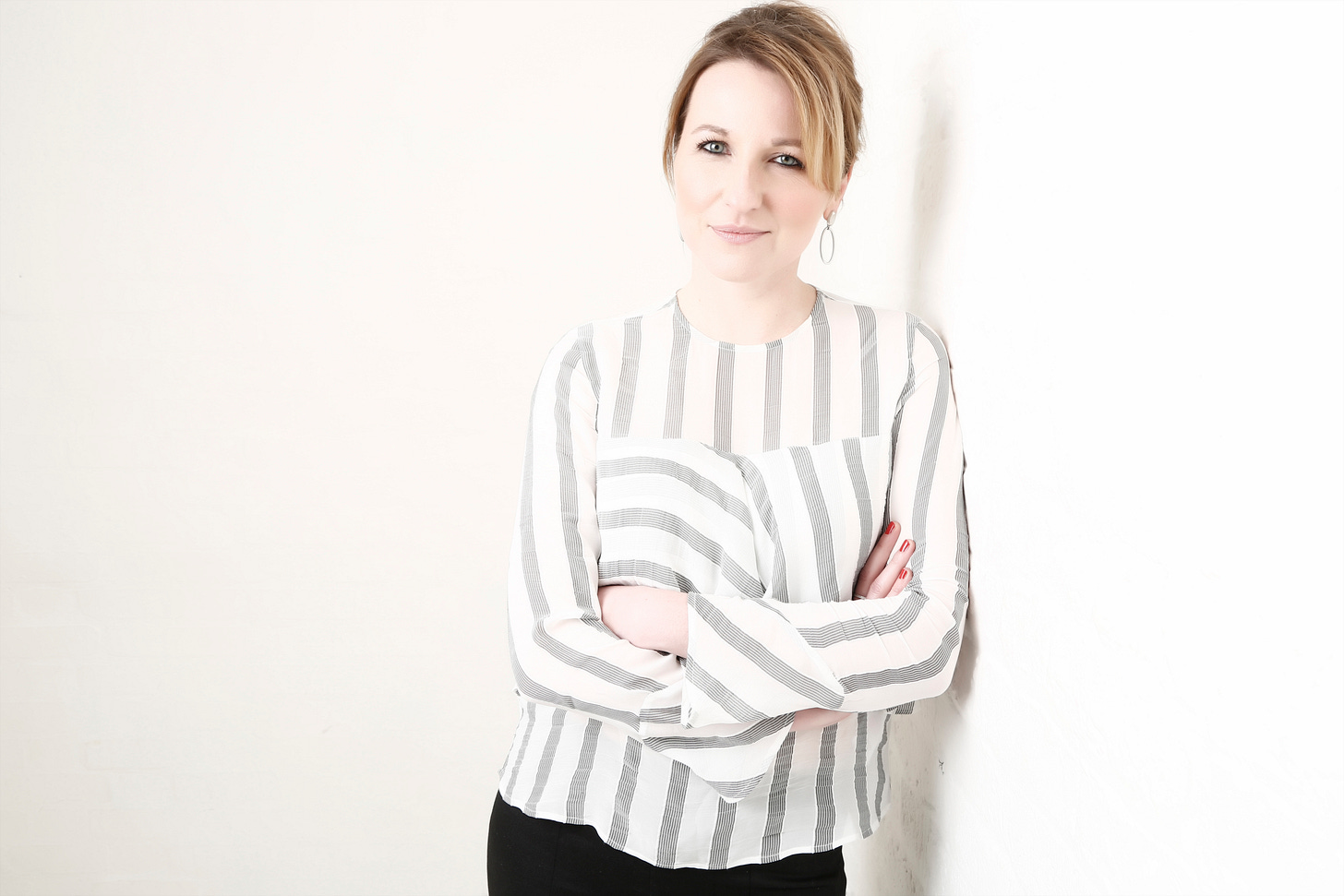Welcome to our #122 weekly newsletter.
“For women taking control of their financial future”
-Jana Hlistova
From The Purse
In this week’s newsletter, we spotlight our interview with Michele Wucker who is a strategist, speaker, and best-selling author. She coined the term ‘gray rhino’ as a call to take a fresh look at how we respond to obvious, probable, impactful risks.
And she recently released the sequel, You Are What You Risk: The New Art and Science of Navigating an Uncertain World.
We talk to Michele about risk, what is it and why is it important. Michele explains the difference between a ‘gray rhino’ and a ‘black swan’, we discuss the financial markets today, how women and men think and act on risk. And why it is that women actually take more risks….
Listen to the full interview here.
***
And you can review the news in brief so you stay on top of global financial, economic and investing trends.
I hope you enjoy this week’s newsletter.
Until next week,
Managing risk, how women and men respond to risk and why women are good at risk-taking
We interviewed Michele Wucker, the ‘risk expert’ on The Purse Podcast
When it comes to money and investing, women are not risk averse despite the money myths media likes to perpetuate.
And although (overall) women invest less than men, this is changing. Fast.
The pandemic has accelerated the shift in the number of women opening investment accounts, investing in equities and in cryptocurrencies. Not to mention more women stepping into angel investing, starting their own VC funds and raising rounds of funding.
Women invest.
According to financial expert Barbara Stewart, the majority of women are risk aware meaning they like to take in more information before making an investing decision. A high percentage of women however, are risk takers and risk seekers.
This is important.
***
We interviewed Michele Wucker on The Purse Podcast about risk and how women manage their money.
Here is a short extract from the interview (we have edited down the response for ease of reading only):
Question: Can you explain how women and men think and act on risk? Does gender actually play a role? And to what extent are women and men byproduct of our society, gender norms, and bias..?
Michele’s response
…So there's a couple things going on-obviously men and women are not exactly the same. Partly because we have very different experiences.
I'm five foot three and a half. If I go down a dark alley at 3:00am, it's not the same as a six foot-something tall man going down that same alley.
Objectively, it is not the same risk.
Similarly, as we spoke just a moment ago, about women speaking up in meetings, in some ways it's riskier; it's harder, it might not be worth the effort, but on the other hand, women get better at it. So eventually perceive it as less (risky).
So there is research that shows that there are certain areas where men are likely to be more risk-seeking and that's in dangerous driving (the speeding), the drunk driving, imbibing substances that are dangerous when you're not supposed to, risky sexual behaviour and so on. Basically, you’re more likely to see men taking those risks.
There's also research that shows that women are more likely to take these social risks, to step up. But as I said, if you know there's this gap between perception of a risk, how it feels and what the risk actually is women who are in a gender atypical role, like a woman police chief, for example, or a woman university president (although that's becoming much more common thankfully)…
… if women make a misstep in that job, they are likely to get punished more than a man in the same job because it is gender typical.
So the consequences are much higher (for women). Women are much more likely to get promoted into ‘glass cliff’ situations where company is teetering on the edge.
And in many ways men are ‘chicken’ to do it. Or in some cases, it's the only time that men will let women do that. And so those are very difficult circumstances.
But the fantastic economist, Julie Nelson, who's written a lot about this (she's got a background in statistics), looked at dozens of studies that have been done over the years with the headline saying that women are ‘risk averse’.
And she found that some of these were not hugely statistically significant. So you're getting big headlines that are repeated throughout the media based on some fairly tenuous results. So that's one problem.
The second problem is that a lot of those, she said, look at averages of women's risk preferences. And when you look at ranges, she found that there's a 95% overlap.
So this whole idea of men and women being different is something else.
The other thing that is true is that women have different financial needs and financial constraints. There are lots and lots of studies showing that women lose $1m over their lifetime because of their career and financial choices.
And that's not necessarily out of risk aversion. It's out of the choices that women have to make.
Historically women getting married is basically taking a huge risk by putting their financial and other future needs into the hands of someone else.
And today it's interesting: I talk with women and they think that getting married is the bigger risk that not getting married, which is a huge social change from when earlier generations were involved.
There is an area that I think needs a lot more work and that's in a situation where women and men don't have all the information about a situation. And in those situations, women are going to step back, get the information and not leap before they've looked as much as makes them feel comfortable.
And so there is a difference there, but as women and men go up the ladder and have similar amounts of information and experience, the research shows that they make similar choices.
So there are lots and lots of nuances to this.
And I hear professional women all the time saying: ‘oh, I'm so risk averse’. And then they tell me what they've done in their life. And I say, ‘what seriously? You think that is risk averse. You being the first in this, the first in that.’ And there's a stereotype that goes with it.
There’s a term called ‘stereotype threat’: sometimes when we expect we're supposed to deal with risk in a certain way, we actually might make decisions that don't align with how we might approach it without that stereotype.
So it's a very, very rich topic and something that I think every single woman needs to think about, needs to talk about with other women.
Every time you hear a woman use the ‘risk averse’ term, say, let's talk about risk aware. Let's talk about risk savvy. Let's talk about not putting yourself down.
Let's have a real conversation…
***
Listen to the entire interview with Michele Wucker here.
What next?
(Re) Listen to the interview with Barbara Stewart on The Purse Podcast about Women & Risk.
(Re) Listen to the interview with Barbara Huson on The Purse Podcast about Rewiring for Wealth.
News in Brief
Financial news
(In total return terms): we’ve just seen the biggest H1 decline for the S&P 500 in 60 years, Deutsche Bank has calculated. It dropped 20.6% and suffered worst first half since 1970. And the Nasdaq 100 finished first half down 30% (most since 2002).
MSCI’s All-Country World Index has tumbled by 20% since the start of 2022, as shares have been hammered by recession worries. According to Reuters, that’s its worst opening six months to a year since the index was created in 1990, wiping $13trn off share values.
Britain’s FTSE 100 index has fared better, down over 3% so far this year, with oil companies rallying.
According to the Bank of America (BoA): government bonds are on course for the worst year since 1865.
Federal Reserve’s Chairman, Jerome Powell says the bigger risk is insufficient action to quell inflation. There is concern that high inflation becomes entrenched that inflation expectations become unanchored.
Eurozone inflation surged to 8.6% in June from 8.1% in May (a fresh record) vs 8.5% expectex which has bolstered calls for an aggressive European Central Bank hike. Data reflect an escalating squeeze on households across Eurozone, where France, Italy and Spain reported new all-time high this week.
Average UK house prices face slowdown despite hitting record high. Weakening economy, cost-of-living squeeze and rising interest rates are cooling market, index shows.
Crypto: bitcoin, ethereum, DeFi & NFTs
Bitcoin just posted its second-worst quarterly performance since inception. It’s been a brutal three months for bitcoin investors as the leading cryptocurrency lost more than 56% in value in Q2 2022. (Bitcoin is down 70%+ since November).
Bitcoin falls below $19,000 on Thursday as pressure mounts on crypto firms. Investors are also worried about rampant inflation which is forcing global central banks to raise interest rates.
Coinbase sinks as Goldman downgrades to sell after 75% rout. Coinbase Global is continuing to struggle due to ‘continued downdraft in crypto prices and the resulting fall in industry activity levels’, according to a research note from Goldman Sachs.
Crypto hedge fund Three Arrows Capital (3AC) falls into liquidation as market crash takes its toll.
MicroStrategy buys an additional $10 million worth of bitcoin. Michael Saylor’s firm MicroStrategy purchased an additional 480 bitcoin at an average price of $20,817.
The Purse Podcast

We cover the following in our conversation:
What is risk
The Gray Rhino vs the Black Swan
The financial markets
Women & managing (systemic) risk
Female founders & VC
What are the Gray Rhinos retail investors should watch out for
And more
Please enjoy! Listen on Apple Podcasts & Spotify+
Coffee Break? Read This
Roe v. Wade’s Demise Is a Turning Point for Corporate America
The pandemic has changed us. Now companies have to change too
We need stories from older mothers – and from women who don’t want children too.
We’d love to hear from you. Get in touch with Jana via the The Purse website or tweet @jointhepurse and @janicka.
The Purse Ltd. Copyright 2022 & All Rights Reserved.
The Purse provides content for informational purposes only, we do not recommend products or services or provide investment advice. Please do your own research or speak to a financial adviser.















Share this post